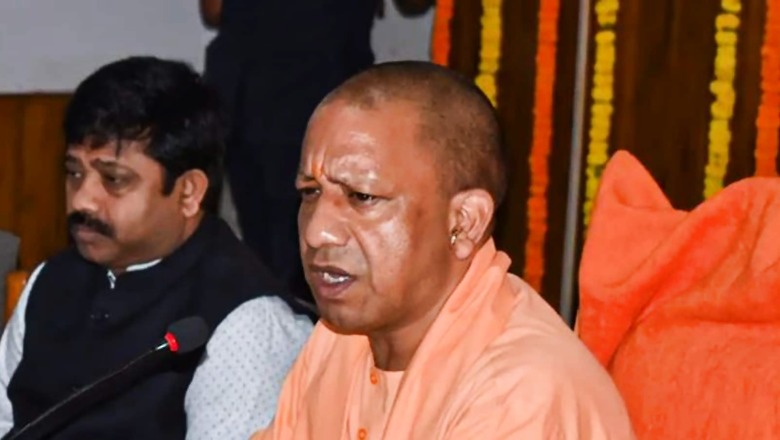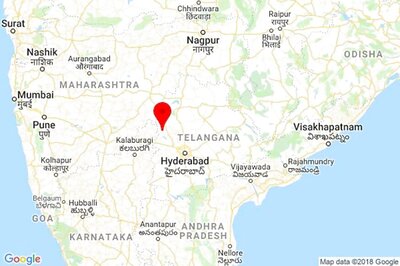
views
The Uttar Pradesh government on September 13 announced the New Electric Vehicle Manufacturing and Mobility Policy, 2022, to promote faster adoption of green mobility solutions and create a conducive ecosystem for EVs in the state. The government is now looking forward to making the state a global hub for the manufacturing of EVs, batteries and other equipment.
The changed policy aims to attract more than Rs 30,000 crore in investment and create over one million direct and indirect jobs. It also intends to help the state achieve the goal of becoming a trillion-dollar economy by capitalising on its potential and opportunities in the EV industry.
Additionally, buyers will also benefit from attractive subsidies under the policy. This includes a complete exemption from road tax and registration fees for the first three years of the policy’s implementation on all segments of EVs purchased and registered in the state. It also includes provisions designed to entice large-scale investments in EVs and battery manufacturing.
Moreover, it provides a capital subsidy of 30% on investment up to Rs 1,000 crore per project for the first two ultra mega battery projects investing Rs 1,500 crore or more each for the establishment of a battery manufacturing plant with a minimum production capacity of 1 GWh.
As per the policy, it provides manufacturers with stamp duty reimbursement at the rate of 100% for the Integrated EV Project and Ultra Mega Battery project for setting up facilities anywhere in the state, and at the rate of 100% in Purvanchal & Bundelkhand region, 75% in Madhyanchal & Pashchimanchal –except Ghaziabad and Gautam Buddh Nagar district—and 50% in Ghaziabad and Gautam Buddh Nagar district for Mega/ Large/ MSME projects.
The policy provides a capital subsidy to service providers developing charging and battery-swapping facilities across the state. The Uttar Pradesh government will also help service providers set up public charging infrastructure by leasing government land for 10 years at a nominal revenue-sharing model of Rs 1 per kWh.
INDUSTRYSPEAK
Pranavant, Partner Deloitte India, told News18 that Uttar Pradesh’s EV policy incentivizes the adoption of electric mobility in the state to adhere to India’s commitment to net zero emission targets by 2070.
However, he suggested: “The State may also aim to mitigate the impact of these incentives on the budget by introducing taxes on pollution emitting vehicles and leveraging incentive under vehicle scrappage policy.”
“Also, it will be important to come out with a road map and action plan with timelines and roles and responsibilities of agencies concerned with the implementation of this policy,” Pranavant noted.
Meanwhile, Samrath Kochar, Founder & CEO of Trontek, said the state is pulling all stops to amp up the EV ecosystem be it in terms of vehicles, batteries or charging infrastructure.
He said: “The new additions include varied capital subsidies demarcated for different kinds of battery manufacturing capacity projects.”
He sees it as a major push to the green mobility movement in the state.
Another industry expert Kalyan C Korimerla, MD & Co-promoter, Etrio stated: “Cargo EV mobility is the way forward for making intra-city and inter-city deliveries viable for e-commerce players.”
He further noted that the state has one of the largest consumer markets and this move will help service the growing last-mile delivery demand more efficiently and eco-consciously.
After the changes were announced Visakh Sasikumar, CEO & Co-founder of Fyn Mobility, told News18 that the new policy comes with higher subsidies and promotes high adoption of EVs in all sectors. He highlighted that the previous policy had no clarity on the subsidies by categories of EVs procured, which comes to light in the new policy. “This promotes not just the B2C sector, but also allows the B2B sector to start investing in EVs and plan to electrify fleets,” he said.
According to Sasikumar, the exemption on road tax and registration for the EVs purchased in this time frame has gone up from 75% to 100% and it is expected to give a boost to EV adoption in large numbers.
He also said: “Introduction of incubation spaces would also cater to an ecosystem of EV sector startups to set shop in UP. Along with charging infrastructure set up and readiness we could see a large number of startups from the South enter the markets in the North leading to an exponential growth in the EV boom in India overall.”
However, the industry expert suggested that while the policy targets the Manufacturing, Charging, Employment and adoption of EVs, there needs to be a policy around the parking infrastructure for the number of EVs in the B2B sectors as well. He believes that without proper subsidies to logistics or service companies on the parking and charging of these EVs, it will be hard to scale EV adoption for B2B sectors.
As per Sasikumar: “While the state gets ready with charging infra for such high adoption there needs to be a GRID readiness from the government as well to be able to take the charging load on the Grid by these vehicles.”
“The government needs to mandate targets of fleet electrification for B2B sectors to implement faster adoption of EVs,” he added.
Overall, he also believes that the policy changes would give a much-needed boost to the B2C sector to start going electric and also accelerate the adoption rate in both B2C and B2B sectors as the TCO (Total cost of ownership) goes down.
Furthermore, Fyn Mobility CEO said: “The new policy with subsidies on charging setup and manufacturing setups could see startups and EV companies from the south enter the North Indian market leading to 2x growth in the EV industry pan India.”
“This will give many locals (1Mn) employment opportunities and they wouldn’t have to migrate to metros and leave their families behind,” he noted.
Divay Pranav, Director – Policy and Partnerships at Yulu, also welcomed the “well-defined objectives” of the policy.
He noted that UP is also the country’s hub of tourism, attracting over 25 crores of domestic and foreign tourists. “We will encourage UP to consider encouraging EV deployment at major tourist sites in Agra, Varanasi, Mathura, Ayodhya and Allahabad, among others,” the industry expert added.
However, she suggested that the state should consider nudging the e-commerce aggregator industry to deliver through EVs, as he believes that it will help in making rapid advancements in the deployment of EVs in major cities across the state.
According to Pranav: “Another point of consideration is improving the skilling ecosystem for EVs in the state. Not only this will help in finding the youth employment opportunity closer to their home but can help them fill the skill deficit for EV technicians, mechanics and electricians in other states in the country.”
Read all the Latest Auto News and Breaking News here
















![Singer Chris Brown Buys Rezvani Tank Military Edition Armored Bulletproof SUV Worth Rs 2 Crore [Video]](https://cdn.kapitoshka.info/news/c5/cf/35/c5cf353979f2e6ea9bcb32aa125e03e9-s.jpg)

Comments
0 comment